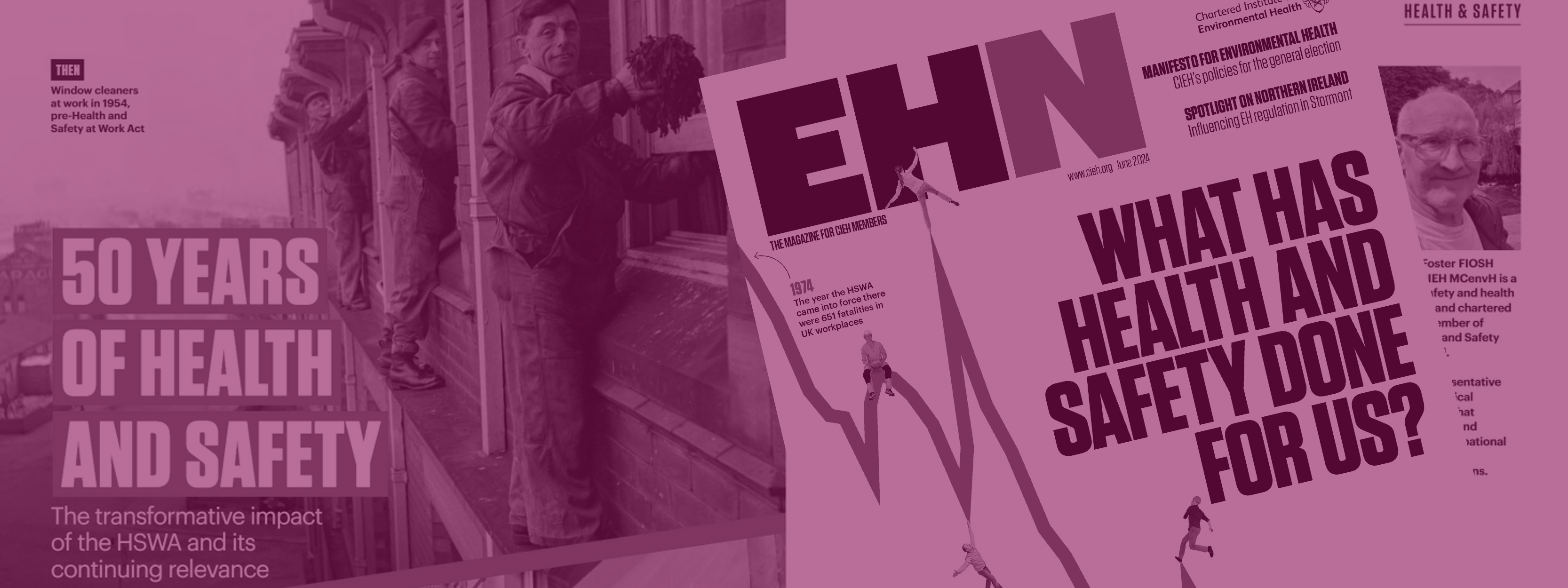EHN special editions
We're celebrating the 50th anniversary of the Health and Safety at Work Act and the Control of Pollution Act with two special editions of EHN available to all.
CIEH member: £180
Affiliate member: £280
Non-member: £280
How do I pay? Please click the book now button to complete the online booking. Please note payment for online bookings are card only.
To pay by purchase order, please email the details to [email protected], this is subject to your employer having this facility in place with CIEH. To speak with one of the team in our contact centre please call 020 7827 5800.
Available dates:
2 and 3 October
27 and 28 November
This workshop will look at preparation and processing methods of sous vide and other minimal processing methods which aim to produce foods that are safe. Delegates will consider different preparation and/or processing methods for ready-to-eat foods and those which will require further processing after any sous vide heat treatment.
This event will explore what is meant by minimally processed food; the physiological and organoleptic qualities of producing such food will be touched upon. More importantly, there will be discussion of the microbiological hazards associated with foods that may be subject to minimal processing, and how these can be controlled to produce safe foods.
“Miranda is an excellent trainer and communicator nice to meet new people and interactive groups"
CPD: 6 hours
Miranda is the Director of Abacus Management and Training Consultancy which was set up in 2007, providing food safety and health and safety consultancy to both the public and private Sectors. Miranda is a Chartered Environmental Health Practitioner having qualified in 1979.
She has managed a range of public facing front line services with over 25 years senior local government experience, having been a joint Chief Executive and Returning Officer in a
District Council and an Assistant Director of Environmental Services in a London Borough.
As a direct result of her professional expertise Miranda has been an advisor to the Food Standards Agency, The Home Office, Local Government Association, The Public Health Laboratory Service and chaired the London Food Co-ordination Group.
Miranda has worked as a regulator for many years, specialising in food safety and food standards. She managed a high performing commercial department within a London Borough and dealt with a range of prosecutions and emergency prohibitions.
Claire has been qualified as an Environmental Health Officer since 1993 and since qualification has worked within Local Authority as a food safety specialist. Claire is the Lead Officer for food safety and manages the food safety team in a London Borough. She is responsible for overseeing the inspection programme, and the operation of the National Food Hygiene Rating Scheme (FHRS), including appeals and revisits.
Claire inspects a variety of food businesses including small retailers, caterers and importers, with a particular focus on those in the manufacturing sector. She is responsible for overseeing the approval process for newly approved premises as well as the inspection of those maintaining approval status. Claire carries out a range of sampling as part of the inspection process for the manufacturers – for both microbiological examination and chemical analysis, depending on the product and processes involved.
Claire has dealt with a range of food safety prosecutions for retail, catering and manufacturing premises. She has been responsible for serving Hygiene Improvement and Hygiene Emergency Prohibitions Notices and voluntary undertakings, as well as a variety of enforcement action in relation to approved premises including Remedial Action Notices and Suspension of Approvals.
Online (Zoom)
Please ensure you can access this platform before booking. See the Zoom system requirements for further information.

EHN special editions
We're celebrating the 50th anniversary of the Health and Safety at Work Act and the Control of Pollution Act with two special editions of EHN available to all.